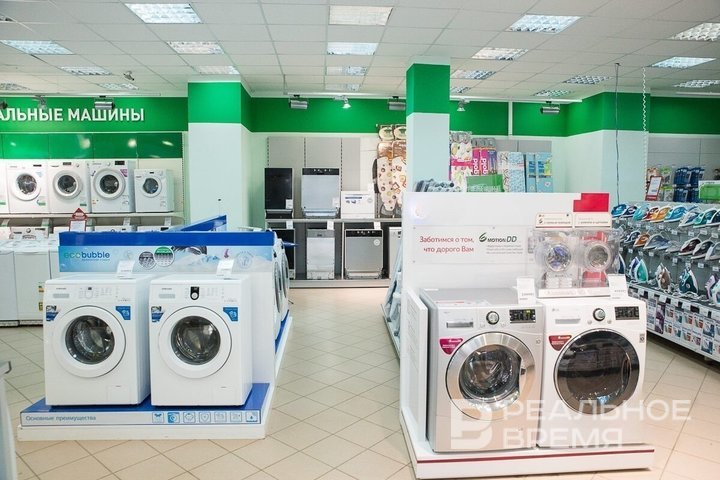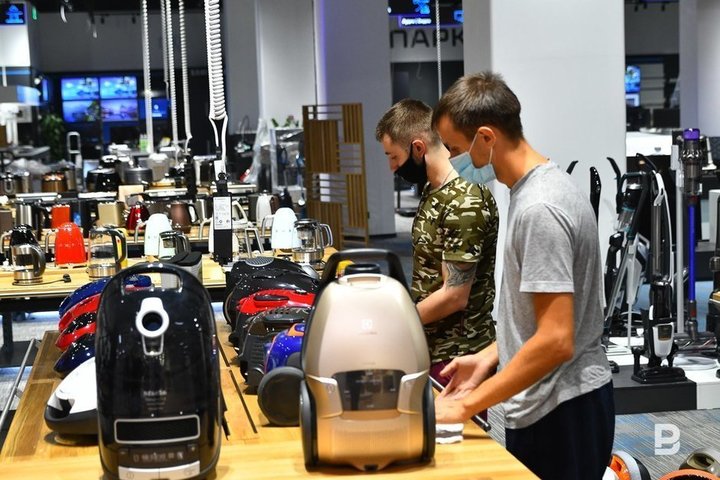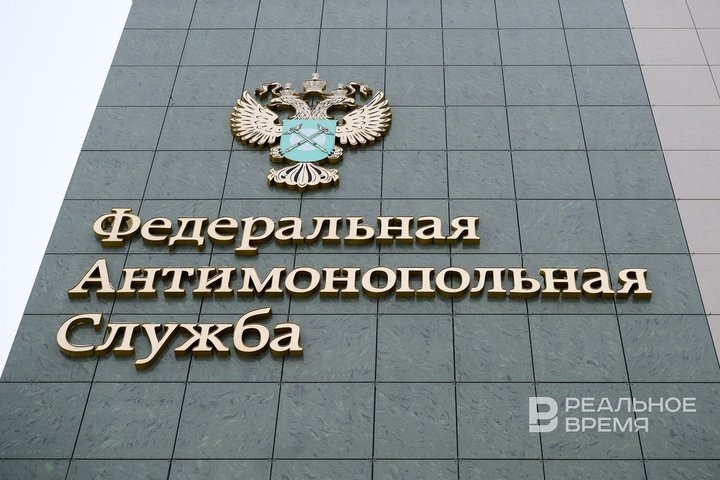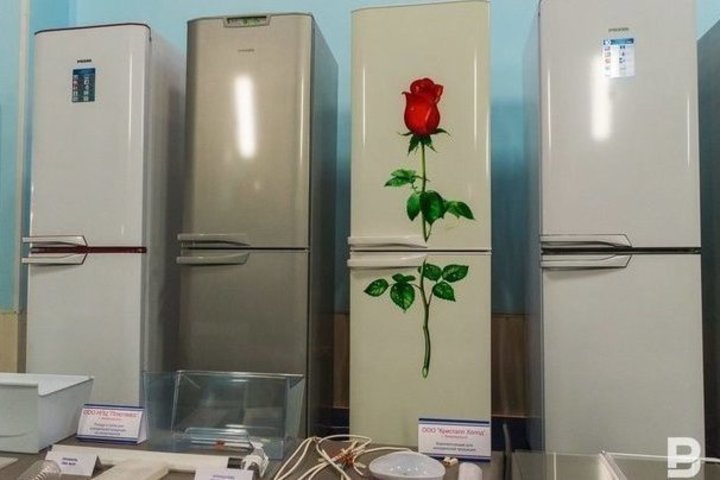DNS, M.Video and Citilink agreed to keep prices until 30 September
Self-restriction when revising retail prices will most likely affect economy-class household electronics

“Pricing is also about competition, you can’t just swing a saber here. Retailers will set the price ceiling themselves depending on the product category,” RATEK association commented on a proposal of the Russian Anto-Monopoly Service for large sellers of household appliances to voluntarily limit the cost of goods. DNS, M.Video and Citilink agreed to go along with the restrictions and are preparing a list of products with fixed prices until 30 September. Most likely, it will include economy-class household appliances. According to experts, the Anti-Monopoly Service’s initiative may be related to possible difficulties in making payments to the main supplier, China, which threatens to lead to a 15% increase in prices on the market.
August self-restraint
Large retail chains DNS, M.Video and Citilink have agreed to voluntarily restrain the growth of prices for electronics and household appliances supporting the initiative of the Federal Anti-Monopoly Service, head of the press service of RATEK, Anton Guskov told Realnoe Vremya.

Nowadays, according to retail chains, the highest demand among buyers of household appliances is for air conditioners and refrigerators — the season is having an effect. Smartphones, laptops and smart watches are leading in the electronics segment. According to RATEK, the growth in sales of electronic goods has to do with the preparation of children for school, and household goods for the upcoming autumn-winter season. Moreover, in some regions, preference is given to goods from the low-cost segment.
“We are holding until 30 September”
Retailers are ready to restrain retail prices until the beginning of autumn. “M.Video- Eldorado Group supports the proposal of FAS of Russia to fix prices for a number of popular models of equipment in anticipation of the new school year,” the company's press service told Realnoe Vremya.
“We are in close cooperation with FAS of Russia. In the near future, a list of product items will be prepared, the prices for which will be fixed for a month: from late August to late September,” the retailer added.
Other retailers have also confirmed their readiness to prepare a list of goods, the prices for which will be frozen until 30 September this year. Moreover, DNS chain allows for an extension after this date. Federal retailers do not explain the reasons for their decision to support the FAS proposal.

FAS expects “responsible pricing”
This week, the Federal Anti-Monopoly Service put forward an initiative for retail chains to voluntarily limit prices for household appliances and electronics that are in demand. “The companies’ compliance with the principles of responsible pricing will have a positive impact on the market,” the regulator said in a statement.
According to FAS, such a practice makes it possible to increase the availability of goods in demand among the population. Last year’s similar campaign proved its effectiveness. “In 2023, the largest retail chains took on voluntary obligations to limit prices and markups. This made it possible to prevent a possible increase in the cost of household appliances and electronics,” the service noted. Perhaps this is why a number of retailers took preventive measures this summer. For example, three weeks ago, M.Video and Eldorado announced that they would fix retail prices for 30 types of goods on the eve of 1 September.
It is unknown when the chains will publish lists of product items with “frozen” prices. But the process is quite active, since products in different chains should not overlap. According to industry representatives, minimum trade markups cannot be uniform. “Pricing is also about competition, so you can’t swing the same sword here. As far as I understand, the minimum trade markup can be different — retailers themselves will set the price ceiling depending on the product category,” believes Anton Guskov, head of the press service of the Association of Trading Companies and Manufacturers of Household Electrical and Computing Equipment (RATEK).

Minimum markups — for the economy class
Most likely, the moratorium on price increases will primarily affect low-cost segment equipment, while premium goods will continue to be sold at market prices. Moreover, retailers expect that the principles of responsible pricing will also be followed by manufacturers of household appliances operating in Russia. The Chinese company Haier, the Turkish Beko, the Korean LG as well as domestic manufacturers themselves are among them.
According to Fplus IT holding, last year, sales of private labels and retail brands from Russia and the CIS countries grew to 332 million units, accounting for 32% of the Russian market. This figure is highest in consumer electronics (TVs, game consoles, etc.). Last year, 27 million products were sold in this niche, of which 35% were brands from Russia and the CIS countries, and another 13% were private labels. Then it is small household appliances (for example, kettles, hair dryers, blenders): 37% and 8%, respectively.
In the segment of large household appliances (refrigerators, washing machines, electric stoves, etc.), products from Russia and the CIS countries accounted for 16%, and private labels did 22%. In computer equipment, this ratio was 22% and 8%, and in telecom (smartphones) — 14% and 6%. At the same time, prices for equipment are growing in leaps and bounds.

However, the 14th package of EU sanctions, adopted in June of this year, could lead to a new round of prices. As Kommersant newspaper reported, by September 2024, prices could soar by 15-20%. The key problem will be the total restrictions that this package imposes on the use of the Bank of Russia’s Financial Message Transfer System, the newspaper’s experts explained. In other words, settlement with suppliers from China will be difficult. Later, citing one of the largest Russian marketplaces, CNews outlet reported that prices for electronics will indeed rise, but by no more than 5-10%.
“The sanctions against Financial Message Transfer System will not have a critical impact on the cost of electronics in Russia,” said a source at one of the Russian IT distributors. “Prices may increase, but not by more than 5-10%. Difficulties with imports may arise for small distributors and suppliers. But they do not have impressive supply volumes that can seriously affect the market, so there will be no shortage of electronics. Most likely, small ‘grey’ and ‘black’ suppliers will wind up their activities,” the outlet believed. In any case, FAS has responded to the possible threat and is trying to localise another possible price hike.